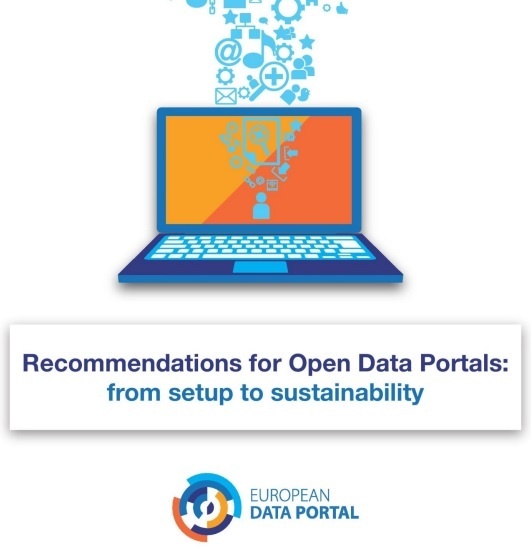Recommendations for sustainable Open Data Portals
03/04/2017


The Open Data Institute (ODI) released 'Recommendations for Open Data Portals: from setup to sustanaibility' (2017) as part of the European Data Portal project. This is the first of two reports which will look at the sustainability of Open Data portals. You may boost your knowledge about Open Data with eLearning modules (+ More Training Material) available on European Data Portal.
________________________________________________________________________________________________
Open Data Portals are:
- web-based interfaces designed to make it easier to find re-usable information. Like library catalogues, they contain metadata records of datasets published for re-use ..., (Re-using Open Data ...: a new European Data Portal study report);
- a critical part of our data infrastructure: they connect data holders with data users, who in turn create services that citizens and businesses benefit from and rely on.
|
At its core each PORTAL has the same FUNCTIONS: |
|
1.) help people find the Open Data they need; |
|
2.) ensure that data accessed via the portal continues to be relevant, useful and usable; |
|
3.) monitor and improve the quality and timeliness of data accessed via the portal; |
|
4.) keep pace with data technologies and services, and user needs, as they evolve. |
Considering that most Open Data portals were set up without sustainability in mind, portal owners now face a series of interlinked problems: limited funding, challenges instigating re-use of data, data-quality issues, securing political support for publishing relevant data, and scaling up with legacy systems and operating structures.
This means many portals struggle to remain fit for purpose...
The report 'Recommendations for Open Data Portals: from setup to sustanaibility' sets outs how portals can move from setup to sustainability, with recommendations in each of five key areas, which should be encompassed by a sustainable Open Data Portal:
|
(1) governance (2) financing (3) architecture (4) operations that make a portal sustainable (5) metrics that can be used to monitor and evaluate progress |
By highlighting examples of successful ideas and initiatives across Europe, in the recommendations and through several case studies, the report demonstrates best practices for others to follow:
The report’s authors have significant experience creating Open Data portals and leading Open Data initiatives, including data.gov.uk, legislation.gov.uk, data.police.uk, and the Open Defra initiative.
The report was reviewed and contributed to by the team that have developed and manage the European Data Portal.
________________________________________________________________________________________________
SOURCE: 'Recommendations for Open Data Portals: from setup to sustanaibility' (European Data Portal, © European Union, 2017).
________________________________________________________________________________________________
Related content:
- Re-using Open Data ...: a new European Data Portal study report (AIMS)
- What is Open Data? (ODI)
- 5 ways to be a better Open Data reuser (ODI)
- Creating Value through Open Data: Study on the Impact of Re-use of Public Data Resources (EC, 2015)
- INRA2025 : Open Science priority, Data sharing and much more (AIMS)
- Love Your Data International Week 2017 (AIMS)
- Ghana Open Data Portal : unleashing the power of Open Data (AIMS)
- LICENTIA: a web site to Choose the License for your Data (AIMS)
- Land Debate on Open Data and Land Governance (AIMS)
- Open Science 101 project (AIMS)
- THE ROLE OF OPEN DATA FOR SUSTAINABLE DEVELOPMENT - A BRIEF FROM EASTERN EUROPE AND CENTRAL ASIA (UNDP, supported by Open Data for development network, 2016)
